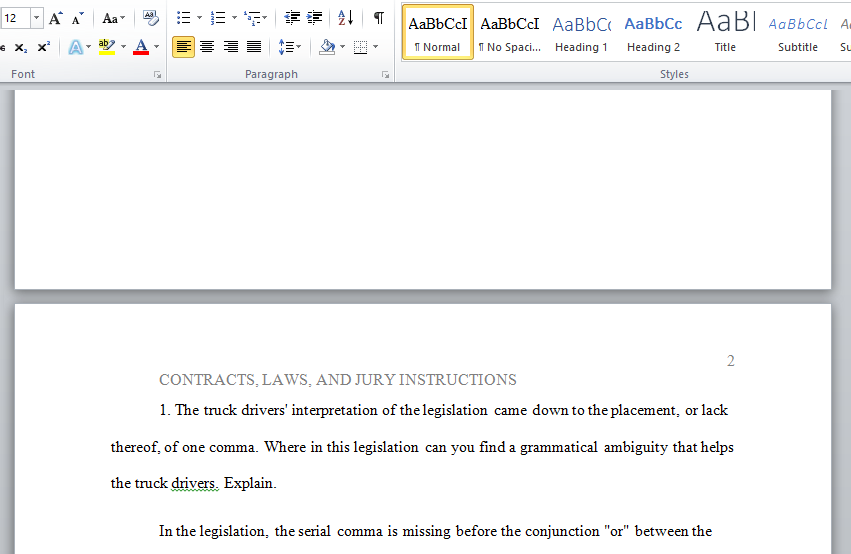Answer the questions provided on legislation, contracts, laws and jury instructions
Contracts, laws and jury instructions often contain ambiguous and unnecessarily complicated language. Here’s a link to a Ted Talk on the subject:
Link (Links to an external site.)
Here’s an article that digs a bit deeper into contract drafting:
Link (Links to an external site.)
Let’s take a look at a real life example of how poorly drafted legislation can lead to a very costly lawsuit. Three truck drivers in Maine sued the dairy company that employed them for four years’ worth of overtime pay. The plaintiffs claimed they were covered under Maine’s overtime law that requires one-and-a-half pay for hours worked each week over 40. The overtime law included several exemptions, meaning some workers were not entitled overtime pay. Exemptions were included for those involved with:
“The canning, processing, preserving, freezing, drying, marketing, storing, packing for shipment or distribution of:
a. Agricultural produce;
b. Meat and fish products; and,
c. Perishable foods
Answer these questions. Be sure to number your answers:
1. The truck drivers’ interpretation of the legislation came down to the placement, or lack thereof, of one comma. Where in this legislation can you find a grammatical ambiguity that helps the truck drivers. Explain.
2. Concerning contract drafting, courts typically interpret ambiguous contract terms against the drafter of the contract, especially when the drafting party has a superior bargaining position, with greater experience of the assistance of counsel. Imagine you are negotiating for the purchase of a ranch in Montana. You hire a high priced attorney to draft the agreement. The ranch owner, with no legal experience, decides to save money and represent himself. An ambiguous term in the contract is later interpreted in his favor. Is it fair? Explain.

